

Our July 4th Playlist
By Seth
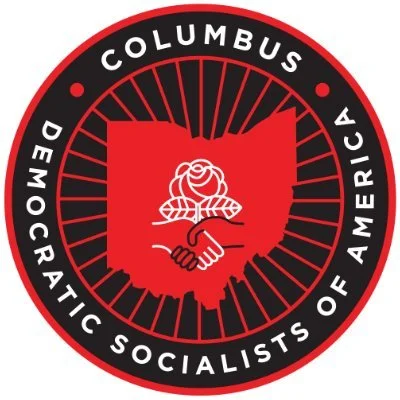

A statement from Columbus DSA’s Steering Committee Re: Abortion access in Ohio
The most immediate and useful thing you can do is give your money to an abortion fund – WHO/Ohio (@whoohio) Midwest Access Coalition (@midwest_access_coalition), Preterm in Cleveland (@pretermclevelandohio), the Aggie Fund in Toledo. They all facilitate people getting abortion care that they need as abortion care that is now more difficult to access than ever.
Remember that we have known – with certainty – that this was coming for six weeks. Organizers, clinic defenders, clinic workers, and other folks on the front line have known for much, much longer. Roe has been a line in the sand, allowing state level restrictions to pop up rapidly and prevent many, many people from accessing abortion services despite the theoretical right.
What is a Right without Access?
Every day of the six weeks prior to the court’s decision was a blessing for those who sought abortion care, because every day the Supreme Court delayed their decision – however cowardly it was to do so – people were able to get that care.
Abortion is older than the state.
Abortion providers have historically been witches, midwives, rootworkers, herbalists, people on the margins who serve the health of our communities, and people from who power has been withheld.
Legality hasn’t been the norm for most of human history. Stripping away the legal right to abortion will not deter us from owning and celebrating our bodies and holding our community close.
There is no pithy statement, quip or hot take that wouldn’t immediately undermine the severity of what has happened. People are suffering.
There is no usefulness in being content with our moral superiority, pointing out hypocrisy and shortcomings of the “other side.”
It is now time to dive deep within ourselves to take care of our people and to do for us what the state cannot or refuses to do.
The people in power do not care about us. not the GOP, not the Democratic Party – but there are more of us than there are of them.
It is time to join a mass movement that takes care of others and will fight back for the right to do so.
You can join ours at columbusdsa.org. It will take all of us.

Radical Queer Self-Defense & Socialism Spreads Upstate
We’re coming to the end of Pride Month amidst an environment of escalating attacks from the right on queer and trans people.
Tonight, we speak to two grassroots organizers working on self-defense programs for queer, trans, and people of color in NYC and the Bay Area. We hear from Kenji of Soar Over Hate and DJ Guerrilla Pump of We Are The Ones We’ve Been Waiting For on how they are protecting their communities by organizing educational programs, creating art and healing practices, distributing tools and resources, and uniting community care with self-defense.
We’re also joined live tonight by Aaron Fernando, a member of the Queens DSA Electoral Organizing Committee, to discuss yesterday’s primary election results. Because of the redistricting debacle, New York is holding two primaries this summer with voters weighing in on Governor, Lieutenant Governor and Assembly races yesterday.
DSA For the Many endorsed four socialist Assembly Members for re-election and five new candidates for the Assembly. All the incumbent DSA members won their primaries, some by a very large margin,but of the five new candidates only Sarahana Shrestha, running in the Hudson Valley won her race outright, toppling 13-term incumbent Kevin Cahill who has held the seat since 1999. Samy Nemir Olivares’ race against Erik Dilan in Bushwick and Cypress Hills is still too close to call with Samy trailing by about 200 votes.
To learn more about queer self-defense programs and how you can get involved and support, visit soaroverhate.org and wevebeenwaitingforus.org.
To learn more about getting involved in upcoming races to elect DSA endorsed candidates for senate visit fortheturnout.nyc


Peninsula DSA Condemns SCOTUS Ruling on Dobbs, Calls for Interstate Solidarity
Peninsula DSA Condemns SCOTUS Ruling on Dobbs, Calls for Interstate Solidarity
SAN MATEO, June 28, 2022 — On Friday, June 24, the US Supreme Court released their 6–3 ruling on Dobbs v. Jackson Women’s Health Organization, using anti-scientific and ahistorical arguments to overturn the constitutional right to abortion established by Roe v. Wade (1973) and Planned Parenthood v. Casey (1992). This illegitimate Supreme Court has thwarted the will of the people and bypassed the 14th Amendment so the state can force our reproductive labor to create a readily exploitable “domestic supply of infants” for the capitalist class.
Peninsula Democratic Socialists of America (PDSA) vehemently rejects the premise that the people exist to serve the elite-captured economy, or that gender oppression is in any way compatible with democracy. We stand in solidarity with the people in other states who have lost, or may soon lose, non-negotiable human rights. The Dobbs decision is nothing short of an act of class warfare that will disproportionately harm our most vulnerable communities, no matter where they live.
- We demand that Congress end the filibuster in order to pass legislation protecting the right to abortion and reproductive freedom.
- We demand that the California legislature make use of its Democratic supermajority to (1) make the right to abortion explicit, (2) protect any person seeking reproductive healthcare from intimidation, interference, or prosecution, and (3) pass CalCare (AB 1400) to guarantee free healthcare to all.
- We encourage our chapter members and potential members to support reproductive justice by donating to Oakland’s Access Reproductive Justice and by joining our Healthcare Working Group, which next meets on Wednesday, July 20 at 6 p.m.
- We invite our neighbors in San Mateo County to join DSA and build a mass political movement to fight for abortion rights and for democracy.
In the face of barbarism, we continue to fight for equality through socialism, including universal healthcare with free abortion on demand and without apology. They may have the courts, but we have the people. Solidarity forever.
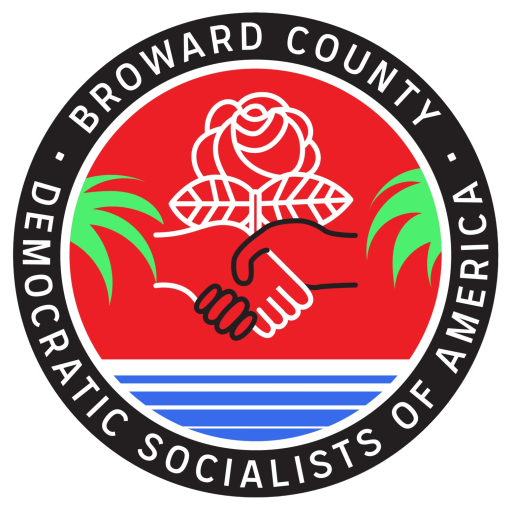

We want to hear from you!
We’re always looking for ways to increase engagement from our membership. Let us know what you’d like to see us do more of by sending us an email.


OVERTURNING ROE IS AN ATTACK ON THE WORKING CLASS
Socialist Feminism cannot ignore the brutal reality of international capitalism.
A robust critique of capitalism is the only way to achieve a global understanding of women’s oppression.
Patriarchy predates capitalism, and the oppression of women transcends class. From unpaid domestic labor to cultural expressions of misogyny, socialism must confront the specific realities of women’s lives.
The path to achieving true equality requires a focused critique of the cultural force of patriarchy.
One response to “OVERTURNING ROE IS AN ATTACK ON THE WORKING CLASS”
-
Hey
 DSA of Broward County. Pleased to meet you! I understand and sympathize with the struggle of women for their political and economic rights as human beings to be recognized and their resistance against unnecessary and sometimes brutal societal pressures; which you guys call the ‘Patriarcy’ and which I generally associate with times past. But What I don’t understand is: what does the ‘Patriarcy’ have to do with innocent lives being brutally murdered in the womb? Roe V. Wade was rightfully abolished. Just because a fetus proves to be an inconvenience to the mother doesn’t give the Constitutional right or any right to abort (kill) the fetus. No one ever, at any time has the right to take away another’s life. Now don’t get me wrong I would understand if abortion is necessary to save the mothers life or because of rape or incest and I think the question of abortion should only be left to women who fit those situations. And even if the mother’s life is at risk, abortion should not be the first resort, we can advocate for the saving of both the mother and the child. The early signs of potential birth complications can be detected and prevented and the complications that can arise during child birth that could be detrimental to the mother can be treated. And Capitalism does not pepatuate oppression of women
DSA of Broward County. Pleased to meet you! I understand and sympathize with the struggle of women for their political and economic rights as human beings to be recognized and their resistance against unnecessary and sometimes brutal societal pressures; which you guys call the ‘Patriarcy’ and which I generally associate with times past. But What I don’t understand is: what does the ‘Patriarcy’ have to do with innocent lives being brutally murdered in the womb? Roe V. Wade was rightfully abolished. Just because a fetus proves to be an inconvenience to the mother doesn’t give the Constitutional right or any right to abort (kill) the fetus. No one ever, at any time has the right to take away another’s life. Now don’t get me wrong I would understand if abortion is necessary to save the mothers life or because of rape or incest and I think the question of abortion should only be left to women who fit those situations. And even if the mother’s life is at risk, abortion should not be the first resort, we can advocate for the saving of both the mother and the child. The early signs of potential birth complications can be detected and prevented and the complications that can arise during child birth that could be detrimental to the mother can be treated. And Capitalism does not pepatuate oppression of women  ; on the contrary, Capitalism has lifted countless women out of poverty, take Madam C.J. Walker aka Sarah Breedlove for example. And also women are not general paid less than men for the same work, in many cases women out pac men. The dilemma is that married women tend to earn less than men and less than unmarried women due to their precious and important roles as mothers. Thank you for your time!
; on the contrary, Capitalism has lifted countless women out of poverty, take Madam C.J. Walker aka Sarah Breedlove for example. And also women are not general paid less than men for the same work, in many cases women out pac men. The dilemma is that married women tend to earn less than men and less than unmarried women due to their precious and important roles as mothers. Thank you for your time!
Leave a Reply
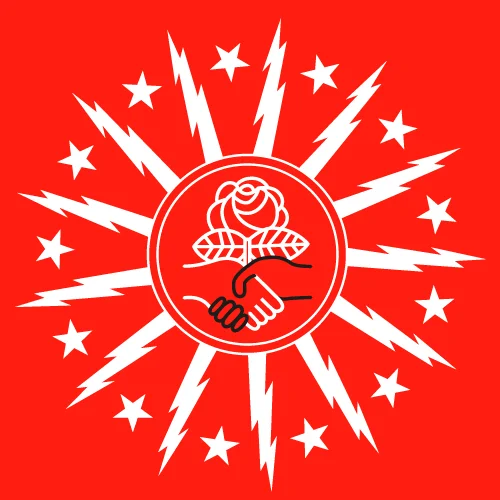

Statement on the Repeal of Roe v. Wade
From the Buffalo DSA Healthcare Work Group:
Today’s Supreme Court ruling in Dobbs v. Jackson Women’s Health Organization overturns the right to abortion which is supported by the majority of the people in country.
People have to fight back. But the abortion fight has been taken over by professionals with a clever legal strategy and a polished PR campaign for politicians, nonprofits, and individualistic aid efforts that all distract from the class war destroying working people and American public life.
These “experts” have failed. We cannot trust their institutions or politicians to wage a fight for what little we have left of abortion rights. Their apologetic arguments emphasize individual “choice,” privacy, and worst case scenarios, rather than plainly stating that abortion and birth control have a central role in the freedom of working people.
Let’s learn from socialist countries, the first and best on abortion, who went up against the established church and valued women as workers and comrades, starting with the Soviet Union providing free abortion in public hospitals and clinics in 1920. When Western Europe won legal abortion in the mid- to late 70s, it was simply included in the national health systems that the labor movement and left parties had already instituted. Irish feminists in their 2018 referendum didn’t just talk about the situations in which abortion might be needed to save lives. They said “free, safe, legal” and organized to bring abortion into their healthcare system by publicly and plainly telling the truth about it.
In America’s post-war labor compromise, it was decided that we would get healthcare through our jobs rather than a universal system – so when we won abortion legally, we still had to figure out how to pay for it. Roe v. Wade protected the private right to buy an abortion procedure on the healthcare marketplace.
Never forget that these compromises were made to discipline American workers through horrible working conditions – including reproductive working conditions: we are not guaranteed universal childcare, healthcare, or paid leave. We are tied to our employers in the marketplace, and fear agitating for more.
Today’s decision is possible because of our minoritarian political system and class domination. We can’t let the same undemocratic forces continue to absorb movement politics. We can’t mobilize for one day in the streets, then move on. We can’t let establishment defenders of the Roe-status-quo continue to tell working class people that private healthcare and abortion is the solution to our bad working conditions and insecure, expensive healthcare and childcare!
Abortion is healthcare, and must be: Public. Free. Safe. Legal.
linktr.ee/buffalodsa ~ protectabortion.org
Show up. Meet people mobilizing in outrage about the Supreme Court Decision, wherever they are in your community.
- Become a part of an organization to structure and amplify your decisions and demands.
- Have real conversations with people about their experiences and what they care about. Make sure to get their contact information so you can channel your rage into organizing and durably change our political-economic system.
Follow up. Organize for universal, public healthcare that includes reproductive care as an essential, and normal, service.
- Collectively, we must refuse to vote for or donate to politicians that do not fight for Medicare for All on the federal level, or New York Health Act on the state level: legislation that would institute a public, single-payer healthcare system.
- We must fight and organize together. Strategize, provide political education, knock doors, and make calls with a democratic membership organization like DSA about single payer healthcare.
- Buffalo DSA has a militant, badass Healthcare Committee: Meeting, July 5
Work it out. Radicalize your coworkers and union into the fight for universal, single payer healthcare.
- Your union can extract wins from your boss, but we can all fight back against the boss class making these decisions. Politicize your coworkers. DSA union members can use this guide to organize their co-workers and unions.
- Union members are strongly encouraged to work with our Healthcare Committee to provide political education on how American healthcare disciplines labor and families, as well as how we can fight back together.
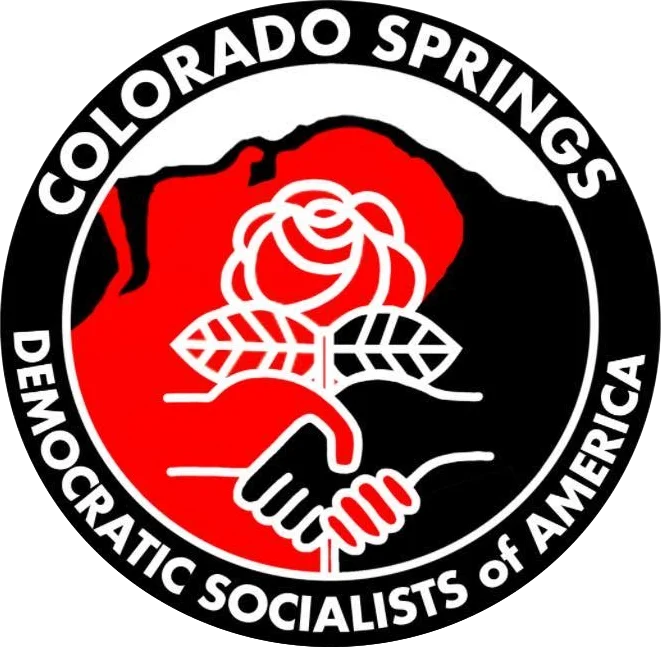

Colorado Springs DSA Statement on the Supreme Court’s Ruling to Overturn Roe v. Wade
The Senate Must Take Action
The Colorado Springs Democratic Socialists of America condemns the Supreme Court’s ruling to overturn Roe v. Wade. We strongly believe that all people have the right to reproductive freedom and to practice bodily autonomy. This ruling is an extreme overstep by an authoritarian Supreme Court and is an attempt to reassert patriarchal social norms and thwart women’s liberation.
We will not let this move go unchallenged. We call on Senators Bennet and Hickenlooper to end the filibuster, codify the right to an abortion, bring forward and vote to pass legislation that would end lifetime appointments to the Supreme Court, to add additional seats to the Supreme Court to end partisan supermajorities that threaten our democracy, and to pass an amendment to the U.S. Constitution that guarantees peoples’ right to reproductive freedom. Safe abortion access is a human right and we call on all Colorado and Colorado Springs legislators to declare it so.
In the face of rising authoritarianism, we must champion the principles of democracy and organize to defend our democratic and human rights. The Colorado Springs Democratic Socialists of America is committed to pushing back against the threat of fascist and patriarchal rule in these critical times for democracy.
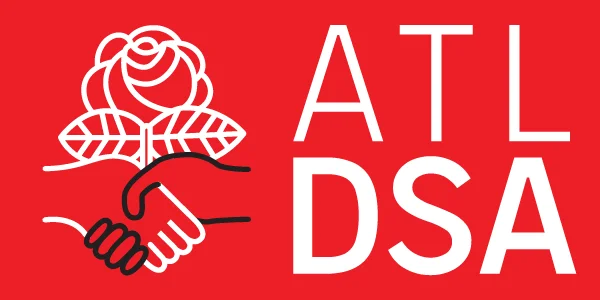

Abortion is a Human Right
Emergency Protest – Friday, June 24, 6:30pm at State Capitol
Mass Meeting – Saturday, June 25, 4pm at 711 Catherine St SW
Abortion is healthcare and a human right, fundamentally tied to the principle of bodily autonomy. We condemn the Supreme Court’s decision to overturn Roe v Wade, which will harm and criminalize working people. This decision is an act of class warfare, and we must oppose this undemocratic assault on our human rights.
This decision shows further proof of what we’ve seen for decades: that the Supreme Court has become a rogue institution uninterested in protecting the constitutional rights of the people and more focused on fulfilling the interests of major corporations and far-right Christian nationalists.
The Supreme Court has made barbaric decisions in the past, upholding segregation in the 19th century and overturning labor protections in the 1920s. These undemocratic rulings were only overturned with the power of mass working class movements that challenged instituted powers at their core. We urge people to make their voices heard and reject all politicians who oppose the right to control one’s own body.

 DSA of Broward County. Pleased to meet you! I understand and sympathize with the struggle of women for their political and economic rights as human beings to be recognized and their resistance against unnecessary and sometimes brutal societal pressures; which you guys call the ‘Patriarcy’ and which I generally associate with times past. But What I don’t understand is: what does the ‘Patriarcy’ have to do with innocent lives being brutally murdered in the womb? Roe V. Wade was rightfully abolished. Just because a fetus proves to be an inconvenience to the mother doesn’t give the Constitutional right or any right to abort (kill) the fetus. No one ever, at any time has the right to take away another’s life. Now don’t get me wrong I would understand if abortion is necessary to save the mothers life or because of rape or incest and I think the question of abortion should only be left to women who fit those situations. And even if the mother’s life is at risk, abortion should not be the first resort, we can advocate for the saving of both the mother and the child. The early signs of potential birth complications can be detected and prevented and the complications that can arise during child birth that could be detrimental to the mother can be treated. And Capitalism does not pepatuate oppression of women
DSA of Broward County. Pleased to meet you! I understand and sympathize with the struggle of women for their political and economic rights as human beings to be recognized and their resistance against unnecessary and sometimes brutal societal pressures; which you guys call the ‘Patriarcy’ and which I generally associate with times past. But What I don’t understand is: what does the ‘Patriarcy’ have to do with innocent lives being brutally murdered in the womb? Roe V. Wade was rightfully abolished. Just because a fetus proves to be an inconvenience to the mother doesn’t give the Constitutional right or any right to abort (kill) the fetus. No one ever, at any time has the right to take away another’s life. Now don’t get me wrong I would understand if abortion is necessary to save the mothers life or because of rape or incest and I think the question of abortion should only be left to women who fit those situations. And even if the mother’s life is at risk, abortion should not be the first resort, we can advocate for the saving of both the mother and the child. The early signs of potential birth complications can be detected and prevented and the complications that can arise during child birth that could be detrimental to the mother can be treated. And Capitalism does not pepatuate oppression of women  ; on the contrary, Capitalism has lifted countless women out of poverty, take Madam C.J. Walker aka Sarah Breedlove for example. And also women are not general paid less than men for the same work, in many cases women out pac men. The dilemma is that married women tend to earn less than men and less than unmarried women due to their precious and important roles as mothers. Thank you for your time!
; on the contrary, Capitalism has lifted countless women out of poverty, take Madam C.J. Walker aka Sarah Breedlove for example. And also women are not general paid less than men for the same work, in many cases women out pac men. The dilemma is that married women tend to earn less than men and less than unmarried women due to their precious and important roles as mothers. Thank you for your time!
Leave a Reply